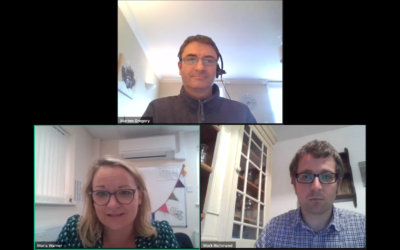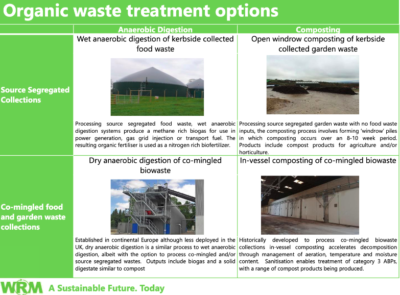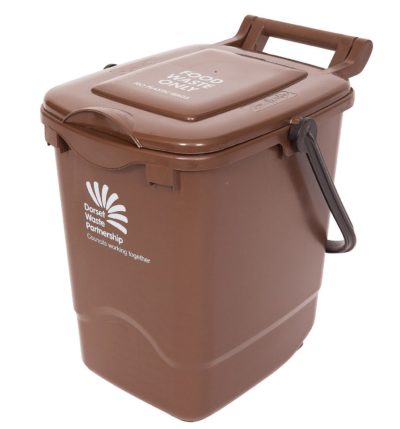That was one of the messages from Mark Richmond, technical director at environmental consultancy WRM Ltd, who told councils that they needed to start developing organic waste treatment strategies now in preparation for the change in policy, which is due to be consulted on in 2021.

Mr Richmond said “Timescales to meeting the 2023 commitment are drawing in. Service design, procurement and mobilisation requires adequate lead time. Delivery of new infrastructure may be challenging. The time to be developing a biowaste strategy is now.”
On the subject of gate fees, Mr Richmond said that reports of some contracts being agreed with negative gate fees were not likely to be sustainable going forward.
He commented: “That situation I don’t think will persist…They are not robust for long term business waste planning. We expect to see gate fees increasing as capacity is utilised.”
Mr Richmond was speaking this week (October 14) at a workshop on food waste at the virtual LARAC 2020 conference organised by Environment Media Group.
Mr Richmond explained there were many factors to consider when developing a strategy—from population density and current contractual arrangements to technology type.
He identified four main technologies to consider—wet anaerobic digestion (AD) for food waste, open windrow composting for green waste and both in-vessel composting (IVC) and dry AD for commingled food and green waste.
Dry AD
Interest in dry AD in the UK has been increasing, he pointed out, following the development of a plant in Fife.

‘Now we are seeing independent operators looking at the feasibility of doing dry AD in a merchant plant as something of an alternative to some of the old IVCs in operation”, he said, explaining that the technology has greater feedstock tolerance than wet AD but still produces biogas.
He advocated that councils draw up a “comprehensive financial model” of the entire service including collection, transfer and treatment to compare different options.
However, he stressed that cost should not be the only factor in making decisions and stressed that there were other “qualitative” considerations such as how services would fit in with existing recycling arrangements.
His comments come after WRM last week published a guide (see here) for local authority collections of food, garden and commingled waste.
Dorset
An example of an existing successful food waste collection service was then presented by Marten Gregory, recycling team leader at Dorset council. Mr Gregory pointed to both the environmental and financial benefits of capturing food waste.
Dorset council currently provides a weekly food waste service to residents and sends the food to a local anaerobic digestion plant in Dorset, alongside recycling collections and fortnightly collections of residual waste. The council achieved a 58.9% recycling rate this year which he said was “the number one recycling rate of all disposal authorities in England”.

Describing the results of council analysis of recyclable waste in the residual waste bin, he said: “Food waste is half of that. Our focus is very much continuing to focus on food waste.”
Dorset has implemented a wide range of measures to improve participation, he explained, from utilising a ‘Dorset Does’ campaign to encourage social normalisation to giving talks to local groups and putting ‘no food waste’ stickers on residual waste bins.
One initiative which he said had created particular success was developing an aperture lid for communal waste bins to stop contamination which he said had created “significant savings’ for the local authority.
When asked why 49% of councils were already collecting food waste, Mr Gregory pointed to the cost savings that could be achieved,
He said: “If food waste is in the residual waste we would be paying four times more for it. Getting is out had made a huge difference to our budget.”









Subscribe for free